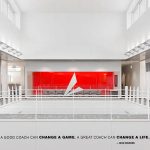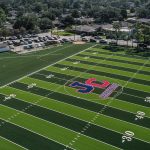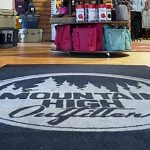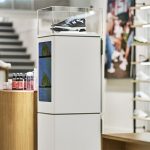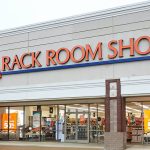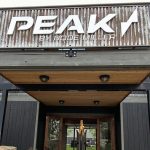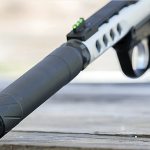It was more of the “same ole song and dance” for July retail as numerous factors — old and new — contributed to the eleventh straight month of falling same-store sales. Analysts listed a number of catalysts for the decline, including consumer concerns over rising unemployment, a cooler-than-usual July, a delayed back-to-school season and later state tax-free holidays.
According to the International Council of Shopping Centers, lower clearance levels and tighter inventories represented an important drag on July sales, since July tends to be a clearance month for summer merchandise. Compounding the problem were cooler-than-average temperatures, which Weather Trends International said were 2.1 degrees cooler that last year — marking the coldest fiscal July in more than 17 years.
Also noted as possible contributors to the decline was the federal “Cash for Clunkers” program which some analysts said may have drawn valuable discretionary income that could have been spent in the retail aisles. As of Thursday, the U.S. Senate approved a $2 billion extension for the car allowance rebate program.
Michael P. Niemira, chief economist and director of research for the International Council of Shopping Centers, said in a release that retail sales were also hampered by leaner inventories as retailers look to clear out merchandise. “ many states pushed their back-to-school sales tax holidays into August, as opposed to July of last year,” Niemira said. “This sales tax holiday calendar shift likely pared about 0.5 percentage points from Julys sales growth.” The ISCS estimates that later BTS promotions will boost August by the same magnitude.
Likewise, a later Labor Day means many retailers will start their back-to-school promotions a week later this year — which for many fell within the first two weeks of August instead of the final week of July.
ISCS, which tracks monthly sales for 33 retail chain stores, said overall comps fell 5.0% for the month which was in line with expectations. Consolidated comps do not include Wal-Mart stores, which stopped reporting monthly number as of May.
As has been the case in recent months, department stores absorbed the biggest comp hit for the month as stingy consumers continue to opt for deep discounts and bargains at off-pricers like TJX Cos. (operator of the T.J. Maxx and Marshalls chains), Ross and Stein-Mart, all of which posted comp gains in July. Target was a mild surprise, as the high-end discounter reported comps off 6.5%, worse than analysts expectations of negative 5.8%, but within the range internal forecasts, the retailer said. Target Chairman and CEO Gregg Steinhafel said the retailer saw favorable gross margin performance within categories and disciplined control in the retail segment while improving “risk trends” in the credit card segment.
Wholesales clubs, which continue to be hampered by declining fuel costs, fell more than expected for the month, as BJs Wholesale and Costco fell 9.1% and 7.0%, respectively. Even excluding fuel costs, analysts said sales for wholesalers were lower than expected.
Expectedly, mall-based retailers and department stores continued to see poor results as cash-strapped consumers looking for deep discounts and bargain-bin prices bypass these stores in favor of online and discount retailers. Analysts who forecast a weaker-than-usual BTS season expect the biggest impact to come from the mall, where parents are expected to bypass fashion apparel and accessories in favor of bare basics like backpacks and other school supplies.
Even recent all-stars The Buckle and Aeropostale posted lower-than-expected results, albeit still seeing improvement of 2.8% and 6.0%, respectively. Gap Inc., operator of the Gap, Banana Republic and Old Navy brands, among others, posted same-stores sales of negative 8%, exceeding analysts expectations by 0.5% and prompting the fashion-savvy retailer to boost guidance for the second quarter. American Eagle also upped guidance for Q2 despite missing sales expectations.
For department stores, which have been far and away the worst performer amidst a frugal market environment, the ICSC reported consolidated comps were off 9.6% on a 12.5% drop from the luxury sector, which includes Neiman-Marcus, Nordstrom and Saks — all of which have shown relatively dismal numbers for the year-to-date. Nordstrom, which benefited from a mid-July anniversary sale, exceeded expectations while Macys and Neiman-Marcus continued to struggle mightily, posting comps that declined 10.7% and 27.3%, respectively. Neiman-Marcus reported comps for its specialty retail stores – which includes Neiman Marcus Stores and Bergdorf Goodman – fell 25.5% while comps from the its direct segment plummeted 34.2%.
The lone comp gain from the department store sector cam from value-driven Kohls, which posted a fractional improvement for the month significantly better than the 3.2% decline analysts forecasted. Citing strong comp results from the home, accessories and footwear businesses, Kohls President and CEO Kevin Mansell upped Q2 guidance. July was the first time Kohls has seen a monthly comp improvement since June of 2008.
Despite a string of gloomy months for retail comps, retailers can take some solace in results from a recent report issued by the Labor Department that indicates companies are finally beginning to curb layoffs. According to the report, the unemployment rate dipped for the first time since April of 2008, a sign that the end of the recession may be nearing. The report also indicated that a net total of 247,000 jobs were lost in July a little more than half of the jobs that were lost in June.
The Buckle didnt quite live up to the expectations in July, but still posted comps improvement of 2.8% on revenues that increased 7.9% to $61.5 million from $57.0 million a year ago.
On a pre-recorded call, management for the mall-based retailer said mens sales, which represented 39% of total sales, slipped 3% despite strength from denim and woven shirts. Price points for the mens side were up 6.5% in the month. The womens side, which accounted for 61% of sales, was up about 17.5% on strength from denim, knit tops, active apparel and accessories. Price points were up about 8%.
Zumiez, Inc. reported comps fell 16.8% for July on net sales that decreased 5.6% to $29.9 million from $31.7 million in the year-ago period.
July weekly comps were negative 18.4%, negative 18.1%, negative 14.5% and negative 16.7% for weeks one through four, respectively. On a pre-recorded call, CFO Trevor Lang said the decrease in comparable-store sales was due to a decrease in comparable-store transactions and, to a lesser extent, a decrease in average unit retail.
All departments comped negative for the month.

